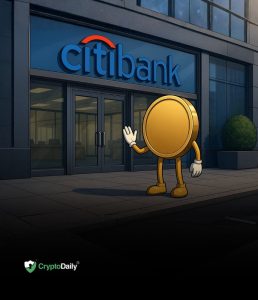This week’s guest on the Cardano SPO Column is a bare metal Single Pool Operator with the aim to reforest the city of Milan and its region: Carden Pool [CRPL].
Last week’s guest was a stake pool aiming to provide top tier staking experience to its delegators while also donating to the fight against pediatric cancer.
This initiative is a point of reference for everything Cardano and every week or two we will invite a Stake Pool Operator (SPO) to answer some questions and give us an update directly from within the Cardano community.
Considering that many of our readers are new to the crypto space, we will have a mix of simple and technical questions.
Cardano SPO, interview with Carden Pool [CRPL]
Hello, glad to have you here. Tell us something about your team, where are you based and what are your backgrounds?
Hello to you and all the readers. We are Antonello and Andrea, two engineers born in the capital city who have been living in Milan and Bologna respectively for many years now. Apart from that, we are two old friends (some would say geeks) who continue to share various passions and intentions, including the way we perceive the world.
Over the years we have gathered a lot of experience in IT, computer networks (we are Cisco Certified) and computer security. This knowledge, combined with a healthy curiosity about the crypto world, allowed us to understand what the Cardano ecosystem really represents and to become so passionate about it that we wanted to become an active part of it by creating Carden Pool.
What fascinates you about Cardano and why did you decide to operate a stake pool?
There are many aspects of Cardano that fascinate and excite us.
We believe that the Cardano platform is the answer to the challenges that all cryptocurrencies will face in the near future. The problems of environmental impact, scalability, economic sustainability, security and interoperability have been studied and solved through an academic approach. This way of working, never applied before at this scale, has generated a solid foundation on which we are building the future of Cardano together with the whole community.
Speaking of the future, we are only at the beginning! Cardano has been supporting smart contracts for less than ten days now and this brings us directly into the world of possibilities offered by DeFi (Decentralized Finance). The whole Cardano community is working hard and passionately to release amazing dApps (decentralized apps) but the best is yet to come!
Cardano is a driver for change worldwide, though it is in Africa that it has chosen to debut as a “financial and social system”. Financial identity, access to credit and education management are just some of the “drivers of change ” that Cardano is working on in the old continent.
As if that were not enough to justify our passion, the Cardano community is distinguished by noble intentions. Many stake pools, and as many investors, are making the ecosystem “mission driven” through charitable giving on many fronts. This is a visible sign of a tireless community of wonderful people working together for a better world. We truly believe this.
For the readers unfamiliar with staking, can you explain what it is and the difference between staking on an exchange like Binance and delegating to an SPO like you?
In order to explain the difference, some basics on the working principle of a stake pool is necessary.
Cardano is a Proof of Stake blockchain. This means that each node (stake pool) is elected to produce a block of the blockchain according to its “authority”. This depends, for the most part, on the amount of ADA “staked” in the pool by the individual delegators.
Thus, delegators “present” their wallet to a specific stake pool of their preference to contribute to the possibility of it being elected to produce a new block.
All new blocks produced by a pool in one epoch (5 days), are remunerated by the protocol and the revenues distributed among all stake pool participants and operators. On average, the ROA (Return Of ADA) for a delegator is between 4% and 5% per year.
Delegating to a pool is safe as the funds never leave the delegators’ wallets and are not locked!
There are almost 3000 pools at the moment and many of them are physically located in different places to ensure decentralization, security and geographical expansion of the network.
In contrast, there are CEXs (Centralized Exchanges) such as Binance and others. They also offer the possibility of staking but with some differences to consider:
- Users’ ADA are kept in the CEX stake pools (without the user’s knowledge) and rewards are not distributed;
- In order to get rewards from staking the funds, CEXs require that the funds are locked for the duration of the staking;
- By staking on a CEX, users do not have access to their “spending keys” so they do not really own their funds;
- CEXs hold a large part of the total ADA in staking (Binance alone has over 12% of the total and about 100 pools) thus centralizing block production and the network itself.
Have we provided valuable insights to make the decision to start staking independently?

You describe yourself as “bare metal”, can you tell us what that means? And please also tell us about your mission to reforest the city of Milan.
“Bare metal” means that Carden Pool does not use VPS (Virtual Private Servers) but rather dedicated physical servers, specifically designed to have low energy consumption and capable of working continuously, without interruption over time.
This is a highly stable, secure and reliable choice, with an eye to environmental impact and network decentralization.
Being composed of physical machines, bare metal stake pools are located in different points of the planet, and not concentrated in a small number of data centres, thus contributing to network robustness, resilience and security.
Our entire infrastructure (currently 3 stand-alone servers), powered by renewable energy, is distinguished by its low energy consumption of around 45 W/h! About the same as a fluorescent light bulb!
We all know about the environmental challenges of this era and although the sustainability of our pool does not generate any additional CO2 into the environment, with our donations to ForestaMI we can intervene in the reduction of already existing CO2.
Trees are the most effective, economical and engaging way to solve the heat island problem and lower the concentration of greenhouse gases at the same time. By donating 10% of the stake pool rewards, we help ForestaMI to reach the ambitious goal of planting 3 million trees by 2030, both in the city of Milan and its region.
Many thanks for your contribution. Any final thoughts? Where can people find you?
Thank you for the opportunity. We would like to invite all ADA investors to start staking and to choose their pool not only on the basis of ROA percentage but taking into account factors that contribute to improving the Cardano network, both in terms of decentralization and in terms of environmental and social impact.
In this interview, we have touched on many important points that we believe should be considered when choosing a stake pool. Independent staking is not just about ROA but can really have a positive impact on the world!
Anyone interested in getting in touch with us can visit our website and follow us on Twitter. Supporting us is easy, just stake with Carden Pool! You can also find us on AdaPools.org using the ticker CRPL. We wish you all a successful staking!
Disclaimer: The opinions and views of the SPOs are their own and do not necessarily reflect those of the Cardano Foundation or IOHK.
The post Cardano SPO Column: Carden Pool [CRPL] appeared first on The Cryptonomist.

![You are currently viewing Cardano SPO Column: Carden Pool [CRPL]](https://digitalcurrencyresearch.io/wp-content/uploads/2021/09/SPO25-1.jpg)



















